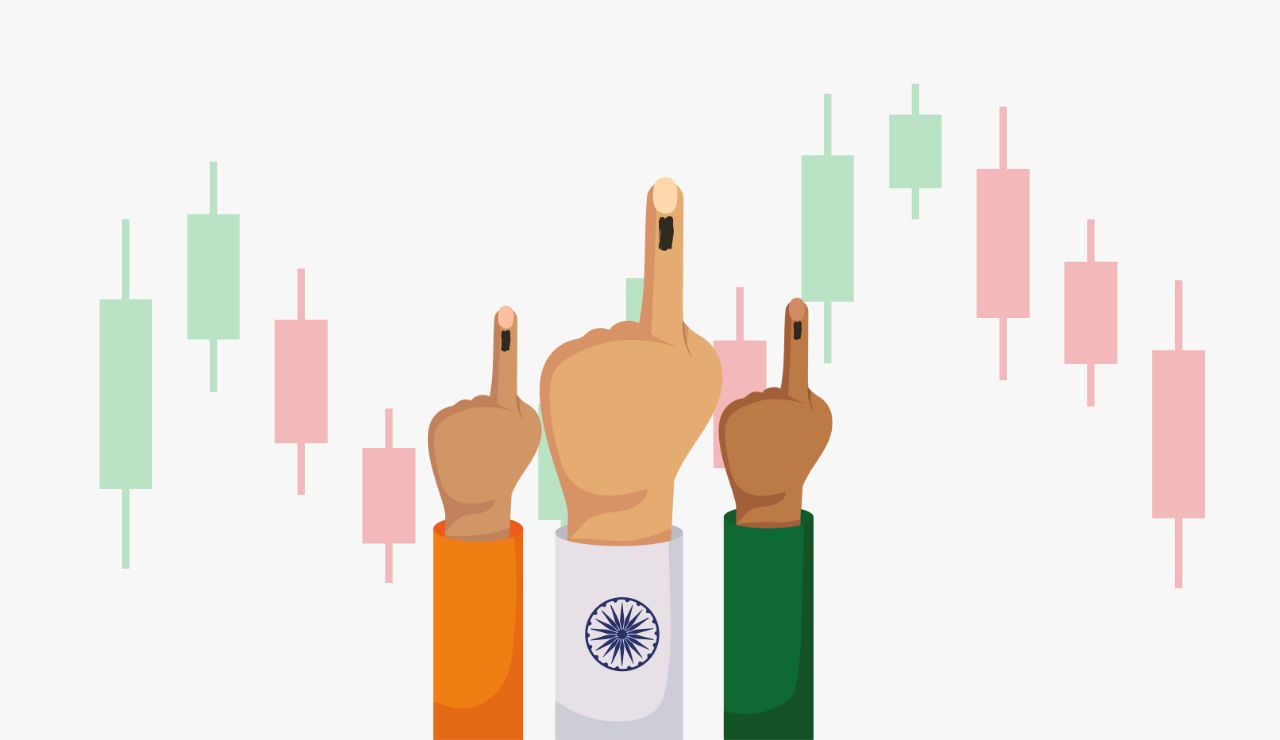The 2024 general elections in India are highly anticipated, not only for their political ramifications but also for their potential impact on the stock market.
Historically, Indian elections have been pivotal events that influence market sentiment, investment patterns, and economic policies.
Identify the strengths and weaknesses in your portfolio based on returns, volatility, asset allocation, and more, enabling you to make informed decisions related to your portfolio.
Review all your mutual Fund Investments in one place with MutualFundWala
As investors and analysts brace for the upcoming polls, understanding the dynamics at play can provide valuable insights into the market’s potential trajectory post-elections.
Historical Context and Market Sentiment
Indian stock markets have tended to react to election outcomes, often reflecting the collective expectations of stability and economic reforms.
For instance, the 2014 elections saw a significant rally in the markets as Narendra Modi’s Bharatiya Janata Party (BJP) secured a majority, promising economic reforms and a business-friendly environment.
The continuity of this sentiment was evident in 2019 when the BJP was re-elected, bolstering investor confidence and driving the markets to new highs.
Speak with our experts to optimize your investments and make informed decisions related to your portfolio.
Factors Influencing the Market Post-Elections
- Political Stability: A decisive victory for a major party, ensuring a stable government, tends to be viewed positively by the markets. Stability implies continuity in policy-making and governance, which is crucial for economic planning and implementation. Conversely, a fractured mandate leading to a coalition government can introduce uncertainties, potentially unsettling the markets.
- Economic Policies: The election outcomes will significantly influence the trajectory of economic policies. A government perceived as pro-reform is likely to attract positive market sentiment. Reforms in sectors like banking, infrastructure, and taxation can drive investor confidence. The Modi government, for example, has pushed for initiatives like the Goods and Services Tax (GST) and the Insolvency and Bankruptcy Code (IBC), which have had profound impacts on the economy and markets.
- Fiscal Management: Market participants closely monitor the fiscal discipline of the incoming government. A commitment to maintaining a balanced fiscal deficit, controlling inflation, and fostering sustainable economic growth are key factors. Any sign of fiscal imprudence, such as excessive populist spending without adequate revenue generation, can negatively impact investor sentiment.
- Global Economic Environment: The global economic backdrop plays a critical role in shaping the market’s response to election results. In an interconnected world, factors such as international trade policies, geopolitical tensions, and global economic growth trends can amplify or mitigate the market’s reaction to domestic political changes.
Speak with our experts to optimize your investments and make informed decisions related to your portfolio.
Scenarios and Market Projections
- Continuation of the Current Government: If the BJP-led National Democratic Alliance (NDA) retains power, markets might react positively, driven by expectations of policy continuity and further economic reforms. Investors generally prefer known entities and predictability, which re-election of the incumbent government can provide. Sectors like infrastructure, manufacturing, and finance might see heightened activity.
- Victory for the Opposition: Should the Indian National Congress or a coalition of opposition parties come to power, the initial market reaction could be mixed. While some investors might express caution due to uncertainties regarding policy direction and economic reforms, others might be optimistic if the new government proposes credible and robust economic policies. Clarity and coherence in their economic agenda will be crucial in stabilizing market sentiment.
- Hung Parliament: A scenario where no single party secures a majority, leading to a coalition government, could introduce short-term volatility. Markets typically react negatively to political uncertainty, fearing delays in policy implementation and governance challenges. However, the long-term impact would depend on the coalition’s stability and economic vision.
Strategic Considerations for Investors
Investors should adopt a balanced approach in the run-up to the elections. Diversification across sectors and asset classes can mitigate risks associated with political volatility.
Keeping an eye on macroeconomic indicators, corporate earnings, and global market trends will be essential in making informed investment decisions.
In conclusion, while the 2024 election results in India are poised to influence the stock market significantly, the extent and nature of this impact will hinge on the stability of the resulting government, its economic policies, and the broader global economic environment.
Investors should stay informed, remain adaptable, and focus on long-term fundamentals to navigate the post-election market landscape effectively.











